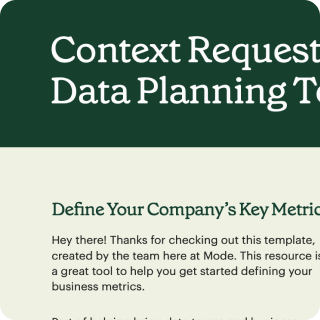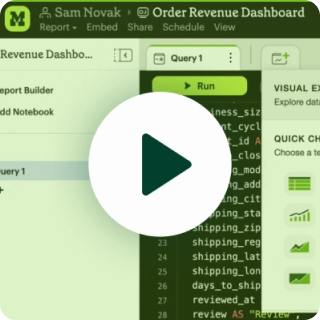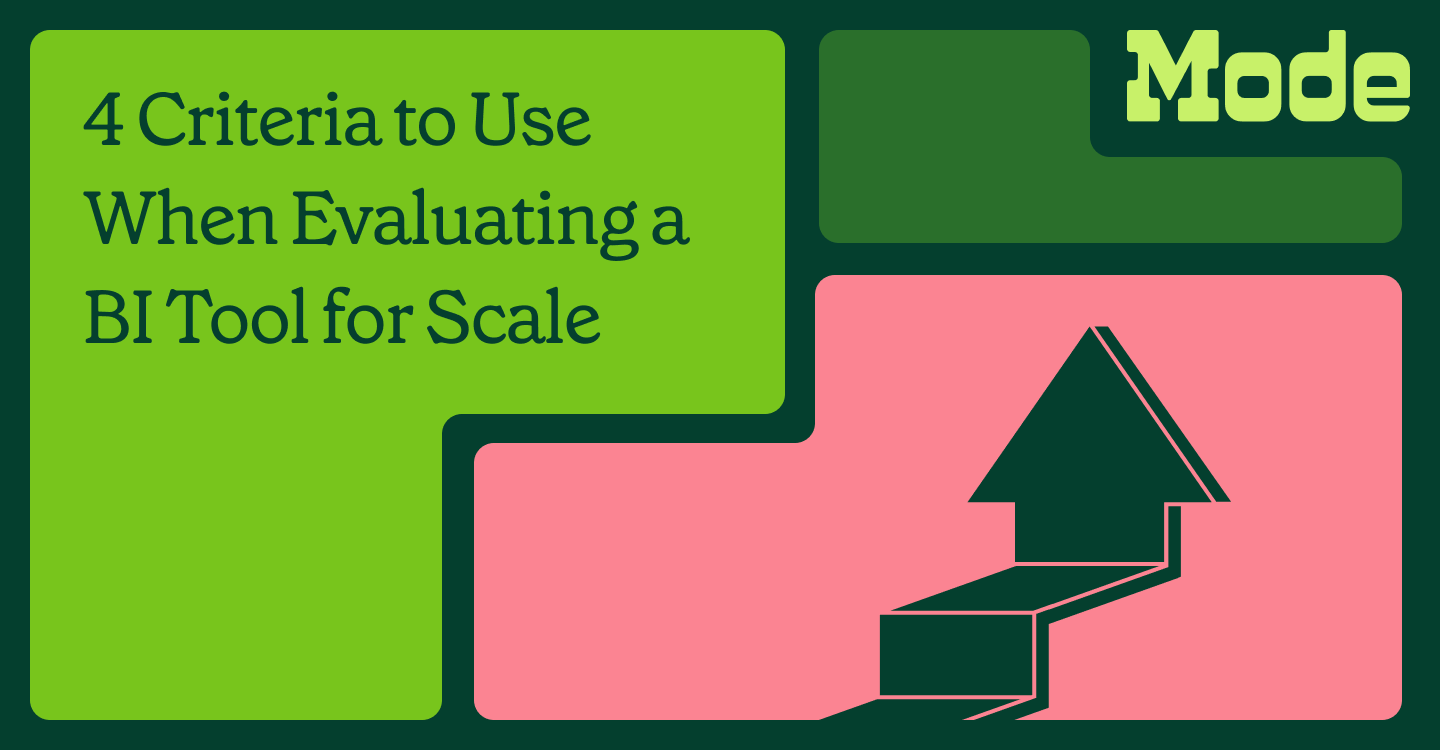Over the course of a startup's lifetime, a company can face a range of data challenges. In the beginning, startup founders do most analysis themselves using tools like Google Analytics. As a company grows, business and product leaders often have analytical questions that these tools—and busy executives—can't answer.
For many companies, reaching this point is a signal to start building an analytics team. But who do you hire? An analyst might be able to deliver value right away, but will she be blocked because nobody's focused on collecting and organizing your data? A data engineer could solve these problems, but will it take too long for her to be able to answer your critical business questions? Should you look for someone who can be a jack-of-all-trades?
Even after the first hire, these questions don't get any easier. As analytics teams begin to help more areas of the business, more analysts—and often ones with different skill sets—are needed. But so, too, are data engineers who can integrate data from different data sources, maintain data pipelines, and handle a growing data infrastructure.
I've seen a number of startups go through this process. Though every company has its own unique needs when considering its first—or next—analytics hire, there are some universal questions that can help leaders make the right decision about who to hire next.
Question 1: What state is your data in today?
If you can get sufficient answers to most of your questions using existing data from a single source, an analyst can start finding insights on day one. It's incredible what you can do with just an event stream; in many cases, one or two tables might be all you need to gain a deep understanding of your users. Similarly, it's possible to go a long way using only data from your production database.
If you've only been tracking events in a product that doesn't make data accessible for ad-hoc analysis (Google Analytics, for example), an analyst might be at a disadvantage. Similarly, if you're starting to ask questions for which analysts need to combine data from multiple sources, they'll be able to analyze the sources individually but will hit roadblocks when bringing it all together. At both stages, you might be better served by a data engineer who can build a data warehouse and/or data pipeline.
Of course, you might not know what state your data is in; it can be hard to determine without an analyst. Talk to some friendly analysts at other companies to get a sense of where you stand.
Takeaway: If an analyst will be blocked by the state of your data, look to hire an engineer.
Question 2: How precise do you need to be?
When beginning to answer business-critical questions with data, you'll want to understand your precision comfort level. For many startups we know, the level is somewhere around “precise enough to make a sound decision.” Imagine you're faced with a dilemma: you need to better understand a particular part of your product but it's not instrumented particularly well. You have two choices: you could get a quick approximation using the data you do have or you could re-instrument the product—and wait for data to roll in—to get an exact answer. If approximations will work most of the answers you need right now, an analyst will be able to develop the guide-posts you need.
Even if precision isn't paramount today, keep in mind that as your company grows, you'll likely encounter situations everywhere on the precision spectrum. Whomever you hire should be able to determine the level of precision that different problems demand, and be able to solve (or delegate) problems accordingly. In other words, for some problems, she should be comfortable providing quick, imprecise answers; for others, she needs to be capable of doing rigorous mathematical work. She'll also need to recognize that precision requirements for certain types of problems may need to change over time.
Takeaway: If you're comfortable making approximations in situations where data is not already clean and organized, look to hire an analyst — but make sure she can identify questions that require exact answers.
Question 3: Can an engineer do the analyst's job?
Sure. If you're thinking about technical skills alone, that is.
Ask an engineer what an analyst does and you'll hear about math, stats, and defining metrics. But often engineers don't understand the job completely: developing strategic questions—and figuring out ways to answer them quantitatively—is where an analyst shines. Many of the best analysts we know come from social sciences and are able to frame problems and think of answers in terms of trade-offs.
That being said, starting your analytics team with an engineer can be advantageous if they're able to think like an analyst (more on that in an upcoming post). In this situation, the person corralling data is also the end user. Your data structures are likely to evolve in a pragmatic way that analysts will find flexible down the road.
When I asked friends about the analyst/engineer hybrid, it elicited very polarized responses. One person argued that there exists an ideal balance—an analyst who understands the technical underpinnings of the product she works on (but is an analyst at heart). Another argued that finding such a person would take forever, especially if you throw in that this person has to be a great communicator as well. I'm not firmly in one camp or the other (clearly there's no right answer), but I do have some advice if you choose to go the hybrid route:
If you find someone who can build a data warehouse and analyze its data, think about what you would want that person to work on if the team grows to five people. If you think she'd become a data engineer, compare her to the best engineering candidate you've met; if she'd become an analyst, compare her to the best analyst candidate—just to make sure you're not settling for someone who is mediocre at both.
Takeaway: If you hire a hybrid analyst/engineer, make sure her skills fit in with the long-term vision for the team.
Question 4: What's going on in the rest of your company?
In any growing startup, there's a natural pull for engineers to work on customer-facing products. This will affect your fledgling analytics team:
- Some companies plan for an analyst hire with the expectation that a production engineer will provide data engineering support. More often than not, this support tends to be minimal, as customer-facing features take precedence. With this in mind, you may want to consider how this analyst will interact with the rest of the company. Will she be effective at getting others to help her? Will she establish credibility and advocate for analytical methods broadly at the company?
- Similarly, if you hire an engineer to work solely on analytics projects, she will feel the gravity of customer-facing development—and will have to actively avoid it. This could manifest itself as pressure from management, or worse, as explicit delegation to customer-facing work.
If you're planning for a data engineer hire, protecting her can be as simple as reporting structure. Consider having your new hire report to someone with priorities other than engineering. At first, this could be the VP of product or, eventually, a Director or VP of analytics. Keep in mind that, especially at early stages, the people you hire and the structure you put in place will heavily influence that team's priorities and culture.
Takeaway: Whether you hire an analyst or engineer, autonomy for a data team is key—as is a plan to protect them from customer-facing work.
Get answers now
While you're working your way through the hiring process, you may be able to leverage members of your current team. Look to someone in finance or business development to find insights using Excel and consider pulling in an engineer to tidy up data and event tracking.
One thing to keep in mind: Analysts can learn technical skills. If you have a great communicator who can frame problems with the right context, they might be champing at the bit to add skills to their tool-belt. SQL is easy to learn. Other common languages (R, Python) are slightly harder, but approachable by the right person. It might not be right for your first hire but it could—especially if you have an experienced team member who can act as mentor.
However you proceed, be sure to keep the above questions in mind and make sure you're setting your new hire up for success.
Thanks to Otis Anderson, Jake Klamka, Miju Han, and Spencer Nelson for reading drafts of this post.





